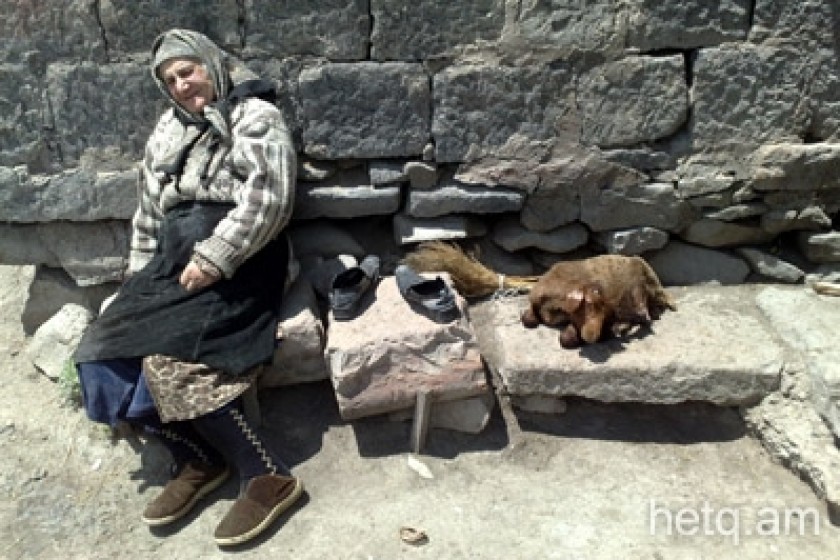
Karmrakar Village Mayor - 'The government intends to split this community apart'
The rusting road sign with the disappearing letters announcing the approach to the village of Karmrakar is emblematic of conditions in this tiny rural community in Shirak Province.
Karmrakar, 1,800 meters above sea level, only has 52 residents.
“This 5,000 year-old village is emptying out. The government wants to hand a huge padlock around our neck,” declares Karmrakar Mayor Gagik Vahradyan.
The 200 changes to the RA “Law on Administrative Division” have impacted Karmrakar as well. Parcels of land belonging to the community will decrease as a result. Those owning 27 hectares of irrigable lands will now have to pay taxes to the neighbouring community of Mayisyan.
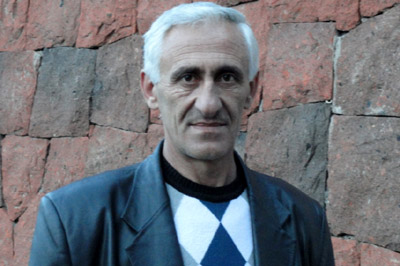 As a result, tax revenues from local property owners to Karmrakar will be cut from 365,000 to 105,000 AMD.
As a result, tax revenues from local property owners to Karmrakar will be cut from 365,000 to 105,000 AMD.
This doesn’t sit well with Mayor Vahradyan.
“I have been raising this issue for the past four years. The Shirak Regional Authority tells me that government decisions aren’t open for discussion but must be obeyed instead. Is this correct? Surely, villagers feel the impact of decisions on their very skin, and not the decision makers,” argues the mayor.
Only 57 hectares of Karmrakar municipal land is irrigable. Thirty hectares were handed over to the town of Gyumri in 1999 and in 2008 the remaining 27 were given to the community of Mayisyan. The remaining land is only suitable for growing grasses for animal feed.
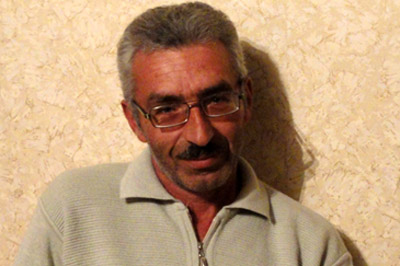 48 year-old Yervand Matevosyan was born in Karmrakar and plans to remain. He owns two hectares of irrigable land and will now have to pay taxes to the Mayisyan Municipality.
48 year-old Yervand Matevosyan was born in Karmrakar and plans to remain. He owns two hectares of irrigable land and will now have to pay taxes to the Mayisyan Municipality.
“But why should I pay the Mayisyan mayor? Will he build roads for me or install water pipes? We’ll pay them money but they’ll use it to improve conditions over there, not here,” says Matevosyan.
Another Karmrakar resident, Manvel Matevosyan, owns eight hectares of non- irrigable land and two irrigable hectares. He was paying 40,000 AMD in taxes to Karmrakar. According to the government’s decision, Manvel will now be paying half to the Mayisyan municipality.
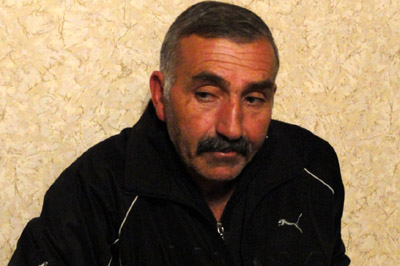 “I have decided not to pay any money to another community. I want to pay taxes in the community in which I live. I want to be able to make demands of our mayor,” says Manvel.
“I have decided not to pay any money to another community. I want to pay taxes in the community in which I live. I want to be able to make demands of our mayor,” says Manvel.
In the Soviet era, Karmrakar was a part of the village of Hatsik. After the 1988 earthquake, many former Karmrakar residents moved back to the old village from Gyumri. In the 1990s, Karmrakar gradually separated from Hatsik, becoming a community on its own.
The Karmrakar school was destroyed during the earthquake and never restored. High school students had to walk the three kilometres to neighboring Hatsik
“After five years of writing letters here and there, we finally got transportation for the kids. That was some battle. I received a letter from the Ministry of Education saying that it wasn’t conducive to build a new school in Karmrakar. I never asked for a new school, just a minivan to ferry the children to Hatsik and back,” recounts the mayor.
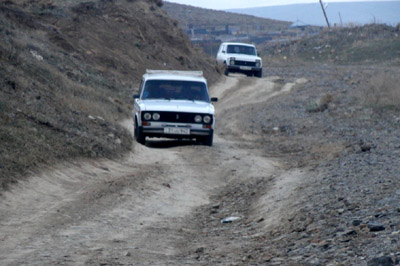 Mayor Vahradyan says it’s all a part of the government’s plan to administratively unite various villages under one municipality.
Mayor Vahradyan says it’s all a part of the government’s plan to administratively unite various villages under one municipality.
“The government thought that if communities had their own viable budgets they could somehow stay afloat and wouldn’t be interested in merging with other communities. So the government started to strip small communities of their budgets. It’s the old Bismarck approach of divide and conquer,” says Mayor Vahradyan.
Karmrakar is only eight kilometres from Gyumri, but the local minivan operator refuses to service the village. The company argues that the road from Hatsik to Karmrakar is impassable. Residents have to reach the village on foot or to hitch a ride. After a long fight, one of the five buses plying the route vow enters the village.
Mayor Vahradyan is a member of the HHZh (Pan National Armenian Movement), but he doesn’t believe this fact has any bearing on the present state of Karmrakar. That’s to say, he doesn’t believe that the ruling Republican Party has singled out the village for recrimination.
Vahradyan says that if he believed that his party affiliation was the cause of the village’s problems, he’d immediately resign.
As to the future prospects of the village, Mayor Vahradyan expresses some doubt.
“They have already taken some of our land and annexed it to Mayisyan. If Karmrakar is wholly incorporated into Hatsik, while still paying taxes to Mayisyan, villagers will only have one choice; to leave. Armenia will be presented with yet another abandoned community.”
 Videos
Videos Photos
Photos




Write a comment